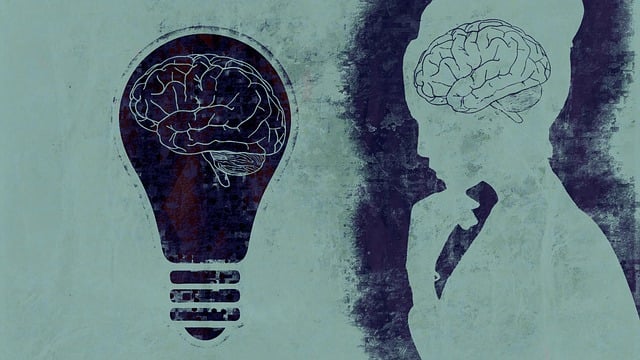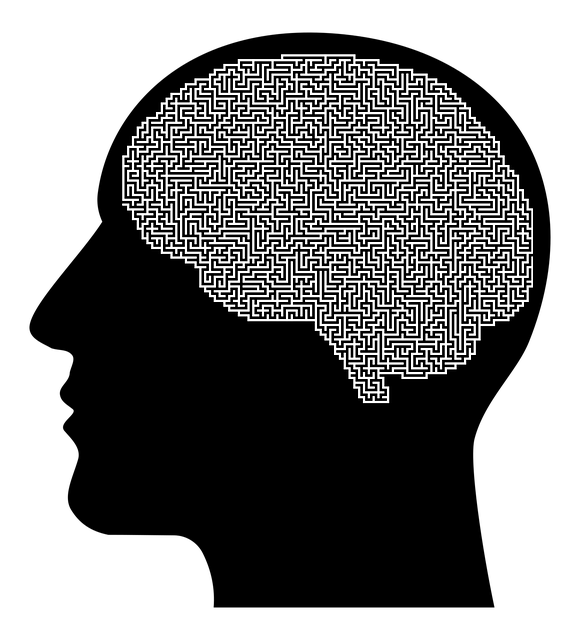Burnout among healthcare providers, caused by high-stress environments and demanding workloads, leads to severe mental health challenges. Recognize signs like physical exhaustion, sleep disturbances, and feelings of detachment, and take proactive measures such as seeking mental wellness coaching or participating in Northglenn Adjustment Disorder Therapy (NADT). Healthcare organizations can prevent burnout through initiatives fostering a supportive work environment, encouraging work-life balance, and providing access to stress reduction methods and safe spaces for discussion. NADT, integrating mental health education and communication strategies, is a revolutionary approach that alleviates burnout symptoms, enhances job satisfaction, improves patient care, and promotes a culture valuing mental health. Prioritizing self-care, including therapy sessions like NADT, crisis interventions, and stress management workshops, creates a healthier, more resilient work environment for healthcare professionals.
Healthcare provider burnout is a growing concern, impacting not just individuals but the entire healthcare system. This article explores comprehensive strategies to prevent and alleviate burnout among healthcare workers. We delve into understanding burnout’s subtle signs and symptoms, highlighting the critical role of supportive work environments created by healthcare organizations. Discover innovative approaches like Northglenn Adjustment Disorder Therapy for targeted relief. Learn essential self-care practices empowering providers to prioritize their mental well-being.
- Understanding Burnout: Recognizing the Signs and Symptoms
- Creating a Supportive Work Environment: Strategies for Healthcare Organizations
- Northglenn Adjustment Disorder Therapy: A Targeted Approach for Burnout Relief
- Self-Care Practices for Healthcare Providers: Prioritizing Mental Well-being
Understanding Burnout: Recognizing the Signs and Symptoms

Burnout among healthcare providers is a growing concern, with high-stress environments and demanding workloads contributing to significant mental health challenges. It’s essential to recognize that burnout isn’t simply feeling tired; it’s a complex state characterized by emotional exhaustion, depersonalization, and reduced personal accomplishment. These symptoms can manifest in various ways, from increased irritability and cynicism towards patients and colleagues to decreased motivation and productivity.
The signs of burnout may include physical exhaustion, insomnia or disrupted sleep patterns, changes in appetite, decreased concentration, and feelings of detachment from one’s work. For professionals in Northglenn or elsewhere, seeking help through Trauma Support Services or Mental Wellness Coaching Programs Development can be a proactive step towards preventing burnout. Enhancing emotional intelligence is also crucial; it enables healthcare workers to recognize these signs in themselves and others, fostering an environment that prioritizes mental wellness alongside physical health.
Creating a Supportive Work Environment: Strategies for Healthcare Organizations

Healthcare organizations play a pivotal role in preventing burnout among their providers by cultivating a supportive work environment. This can be achieved through various initiatives that foster a culture of care and respect. Implementing regular staff meetings, where open dialogue is encouraged, helps identify concerns and promotes team bonding. Additionally, providing access to mental wellness coaching programs and stress reduction methods, such as mindfulness training or yoga sessions, can significantly enhance healthcare workers’ resilience.
Creating safe spaces for providers to discuss challenges related to Northglenn Adjustment Disorder Therapy or other personal struggles is essential. Organizations should also encourage work-life balance by offering flexible schedules and promoting healthy habits through fitness programs or wellness workshops. These strategies not only reduce stress but also boost confidence, leading to happier and more motivated healthcare professionals who can better serve their patients.
Northglenn Adjustment Disorder Therapy: A Targeted Approach for Burnout Relief

In the ongoing battle against healthcare provider burnout, innovative therapeutic approaches like Northglenn Adjustment Disorder Therapy (NADT) are gaining recognition. This targeted therapy is specifically designed to address the unique challenges faced by medical professionals, offering a much-needed respite from the demands of their high-stress careers. NADT incorporates mental health education programs and mind over matter principles to empower healthcare providers with effective coping mechanisms. By integrating communication strategies into the therapeutic process, NADT fosters a supportive environment where practitioners can openly discuss their struggles, learn from one another, and develop sustainable resilience against burnout.
Through its comprehensive approach, Northglenn Adjustment Disorder Therapy not only alleviates symptoms of burnout but also promotes holistic well-being. The tailored nature of the program ensures that each healthcare provider receives individualized support, catering to their specific needs and preferences. By investing in such targeted interventions, healthcare organizations can ultimately enhance job satisfaction, improve patient care, and foster a culture that values mental health and resilience among its workforce.
Self-Care Practices for Healthcare Providers: Prioritizing Mental Well-being

In the high-pressure environment of healthcare, burnout is a significant concern for providers, leading to decreased job satisfaction and potential adverse patient outcomes. Self-care practices are essential tools in preventing this exhaustion. Prioritizing mental well-being should be at the forefront of these strategies. Healthcare professionals must recognize that their emotional health is just as critical as their physical health, and taking time for themselves is not a luxury but a necessity.
Regular therapy sessions, such as those offered by Northglenn Adjustment Disorder Therapy, can provide much-needed support. Crisis intervention guidance and stress management workshops organized within healthcare institutions can empower providers to develop effective coping mechanisms. Additionally, confidence-boosting initiatives can help combat self-doubt, fostering resilience in the face of challenging situations. These proactive measures not only benefit individual practitioners but also contribute to a healthier, more sustainable work environment overall.
Burnout among healthcare providers is a growing concern, but with the right strategies, it can be mitigated. By understanding burnout, recognizing its signs early, and implementing supportive work environments, organizations can foster a healthier culture. Northglenn Adjustment Disorder Therapy offers a targeted approach to combat burnout, promoting mental well-being. Additionally, self-care practices are essential for providers to prioritize their own mental health. Combining these strategies creates a comprehensive solution, ensuring healthcare professionals remain resilient and dedicated to patient care.














